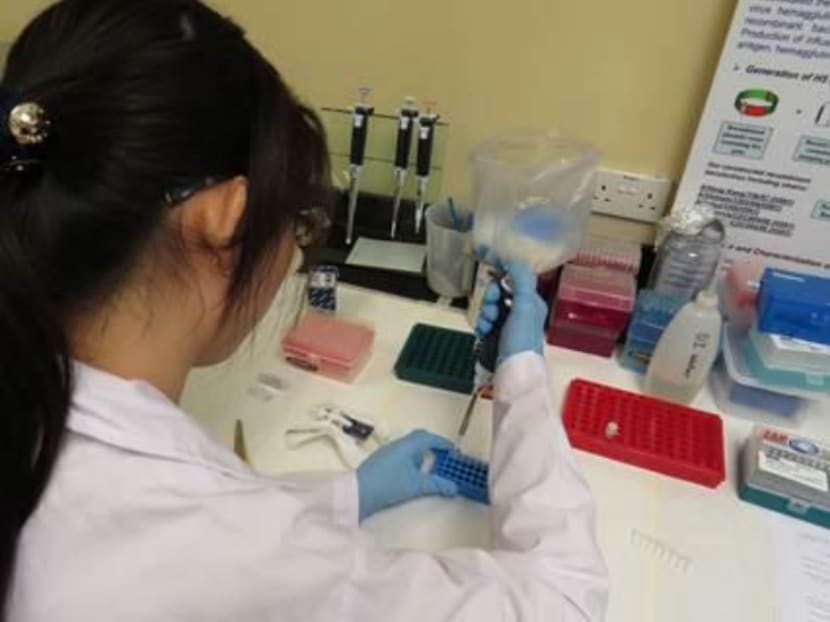New biochip can detect multiple avian diseases using one sample
SINGAPORE — Scientists from the Agri-Food and Veterinary Authority of Singapore (AVA) and Veredus Laboratories have jointly developed the world’s first biochip that detects, differentiates and identifies major poultry infectious disease agents with just one sample.
SINGAPORE — Scientists from the Agri-Food and Veterinary Authority of Singapore (AVA) and Veredus Laboratories have jointly developed the world’s first biochip that detects, differentiates and identifies major poultry infectious disease agents with just one sample.
Among the disease agents that can be identified include bird flu, Newcastle Disease virus, and Salmonella Pullorum. In all, nine major poultry infectious disease agents can be detected.
The detection of bird flu, or the Avian Influenza virus, includes all subtypes with special emphasis on H5, H7 and H9.
The chip works like a “laboratory on a chip”, said a joint statement by the AVA and Veredus today (June 16). Unlike the conventional method of testing which requires different samples for different tests, the biochip is able to detect multiple infectious disease agents affecting poultry using only one sample.
The AVA and Veredus’ scientists have been working on the project since 2010.
Dr Huangfu Taoqi, Principal Scientist at the Animal Health Laboratory of AVA, led a joint team to successfully validate the performance of the biochip. Extensive evaluations on the Avian Influenza virus and Newcastle Disease virus were conducted at the Australian Animal Health Laboratory in Geelong, Australia.
AVA Chief Executive Tan Poh Hong highlighted the importance of the biochip, especially for detecting bird flu.
“Singapore is free from bird flu. However it continues to plague other countries in the region as well as other parts of the world. With the emergence of new strains, it may be a challenge to quickly identify the strain in question,” she said. “The new Lab-on-Chip, capable of rapidly identifying multiple poultry pathogens in one sample, enables authorities to take appropriate actions. This will, in turn, strengthen animal and public health for the region.”







